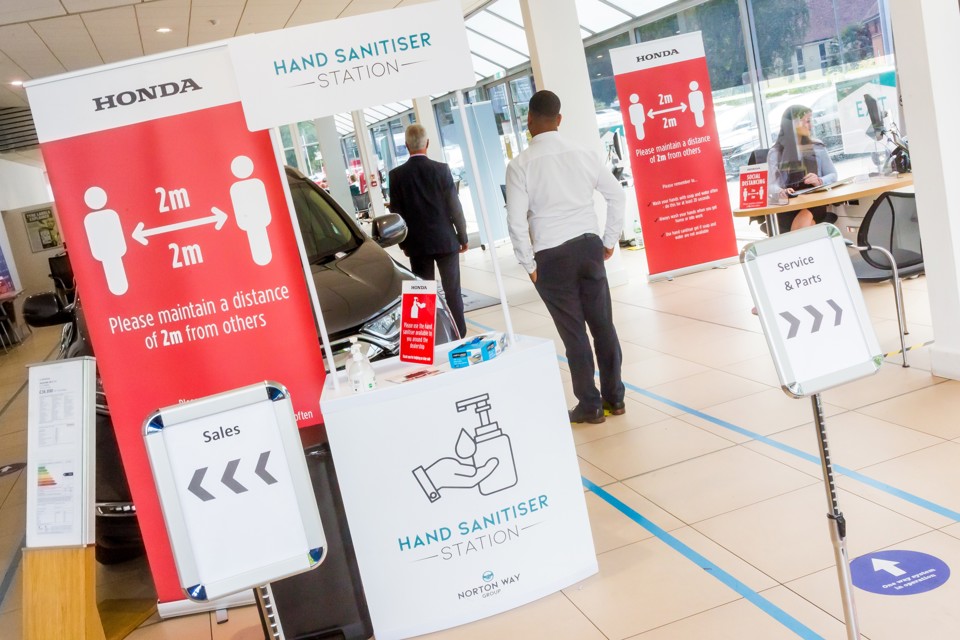August 16’s change to the UK’s COVID-19 self-isolation rules have helped to ease car retailers staffing headaches as “slack” in the labour market eases concern of significant pay growth.
From yesterday, fully-vaccinated employees will no longer have to self-isolate if a contact tests positive for COVID in a shift which many in the sector hope will greatly reduce staff shortages triggered by the post-lockdown ‘pingdemic’.
A month ago analysis by the Guardian newspaper found 1.6 million people were in self isolation after being alerted by the NHS app’s contact tracing system – leaving many businesses short-staffed.
Speaking to AM at the time, Peter Vardy Group chief executive, Peter Vardy, said: “It is a real worry for us. Having so many staff out of the business just makes it harder to deliver the service that we want to. It’s putting a real strain on operations in some places.”
Swansway director Peter Smyth said: “We need to cut out the absences from work. If that means more regular testing, so be it.”
Health and Social Care Secretary Sajid Javid has asserted that only vaccinations would bring the UK out of the COVID-19 crisis, however.
He said: “Getting two doses of a vaccine has tipped the odds in our favour and allowed us to safely reclaim our lost freedoms.
“Vaccines are what will bring this pandemic to an end – the wall of defence provided by the rollout is allowing us to get even closer to normal life.
“If you haven’t already, please make sure you come forward for your jab at the earliest opportunity.”
As changing COVID-19 regulations promise to remove some of the staff shortage risks of recent months, and the end of the Coronavirus Job Retention Scheme’s furlough option approaches, employment has grown, and headline pay growth reached 8.8%.
But RSM UK economist, Tom Pugh, said that an interest rates rise and pay inflation is not yet on the cards.
Pugh said: “At first glance, the surge in headline pay growth to 8.8% 3myy in June is another reason for the Bank of England to start raising interest rates next year, but headline pay has been inflated by base and compositional effects.
“Underlying pay growth is probably closer to 3% 3myy. What’s more, payroll data suggests there were about 200,000 fewer people in employment in July than before the pandemic. As such, there is enough slack in the labour market to prevent wage growth concerning the MPC.”
Employment rose by another 95,000 in the three months to June as the UK’s unemployment rate declined 1ppt from 4.8% to 4.7%.
Pugh said that the record job vacancies shows that strong demand for labour remans, however.
He added: “This should help to ensure that as people come off the furlough scheme they continue to be employed. Indeed, this is why we think that the peak in the unemployment rate is already behind us.”















Login to comment
Comments
No comments have been made yet.